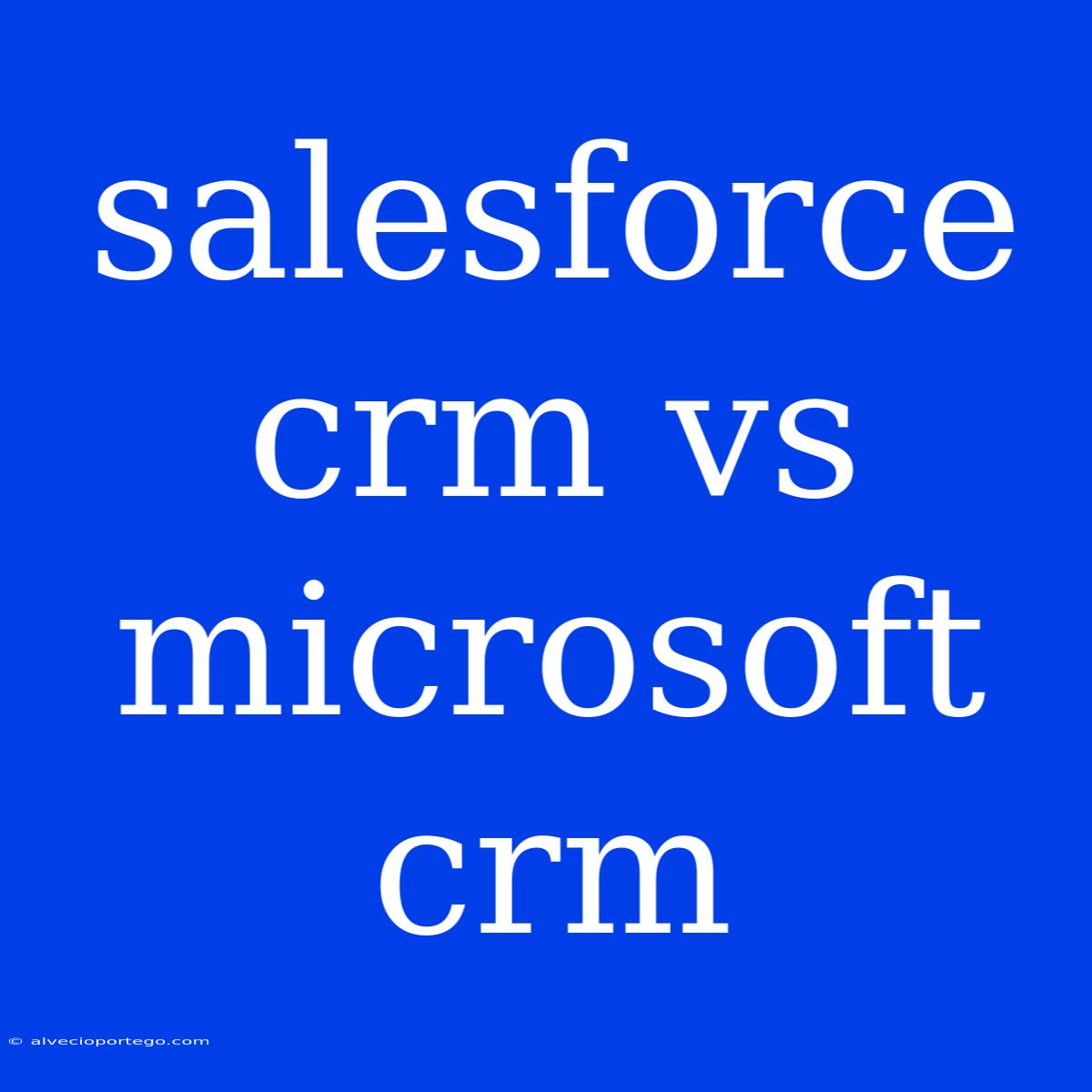Salesforce CRM vs. Microsoft Dynamics 365: Which One Is Right for You?
Choosing the right CRM system can be a game-changer for your business, offering you a centralized platform to manage customer relationships, optimize sales processes, and boost overall productivity. Two titans in the CRM space are Salesforce and Microsoft Dynamics 365. Both boast powerful features and cater to various business sizes and industries. However, their strengths and weaknesses differ, making it crucial to assess your specific needs before making a decision.
Salesforce: The Industry Leader
Strengths:
- Extensive App Ecosystem: Salesforce boasts the largest app ecosystem in the CRM market, offering a wide range of integrations and customizations to meet various business requirements.
- Industry-Specific Solutions: Salesforce provides tailored solutions for specific industries like healthcare, financial services, and manufacturing, offering pre-built features and functionalities that align with industry best practices.
- Strong Customer Service and Support: Salesforce has a strong reputation for its customer service and support, offering comprehensive documentation, online resources, and dedicated support teams.
Weaknesses:
- Cost: Salesforce can be more expensive than other CRM options, especially for large organizations with complex requirements.
- Steep Learning Curve: The platform's complexity and extensive functionalities can require significant time and effort to learn, potentially causing initial implementation challenges.
- Limited Customization: While Salesforce offers a high degree of customization, it can be more challenging to tailor the platform to highly specific business needs compared to more flexible solutions.
Microsoft Dynamics 365: The All-in-One Solution
Strengths:
- Integration with Microsoft Ecosystem: Dynamics 365 seamlessly integrates with other Microsoft products like Office 365, Azure, and Power BI, providing a unified experience for users familiar with the Microsoft suite.
- Cost-Effective: Compared to Salesforce, Dynamics 365 offers a more competitive pricing structure, making it an attractive option for budget-conscious organizations.
- Intuitive User Interface: Dynamics 365 features a user-friendly interface that is easy to learn and navigate, reducing the time required for training and onboarding new users.
Weaknesses:
- Limited App Ecosystem: Dynamics 365 has a smaller app ecosystem compared to Salesforce, limiting the available integrations and customizations.
- Less Industry-Specific Solutions: While Dynamics 365 offers industry-specific modules, its coverage is not as extensive as Salesforce, potentially limiting its applicability to certain industries.
- Less Robust Customer Support: Compared to Salesforce, Dynamics 365 might have a less comprehensive customer support network, potentially making it challenging to resolve issues promptly.
Which One is Right for You?
The best CRM solution depends on your unique business needs, budget, and priorities. Consider these factors when making your decision:
- Budget: If cost is a major concern, Dynamics 365 might be a more suitable option.
- Industry: If your industry requires specialized functionalities, Salesforce's industry-specific solutions could be a better fit.
- Integration: If seamless integration with other Microsoft products is crucial, Dynamics 365 is a clear winner.
- Customization: If you need a highly customizable solution, Salesforce offers greater flexibility.
- Learning Curve: If your team needs a user-friendly interface with a less steep learning curve, Dynamics 365 might be a better choice.
Ultimately, the best way to choose between Salesforce and Dynamics 365 is to conduct a thorough evaluation, taking into account your specific requirements and priorities. Consider exploring each platform's features, functionalities, and pricing models before making a final decision. You can also leverage online resources, industry reviews, and vendor consultations to gain further insights and make an informed choice.

